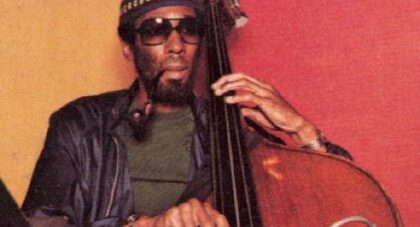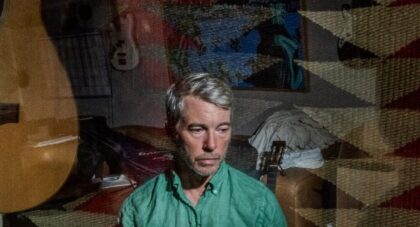ALICE MAY BROCK, born in Brooklyn, New York, on February 28, 1941. A Pisces ... Grew from a difficult child to a juvenile delinquent to a regular (irregular) person ... Spent a few years in high school .... reform school ... fancy school .... Moved to the Lower East Side, then to the green greener Berkshires ... Married crazy Ray D. Brock (picked up in old Cedar Street Tavern) ... Worked as a librarian at the Stockbridge School ... Bought a church ... sang songs ... Fooled around ... Cooked good good food with a smile and other expressions ... Bought a crummy diner .... Turned it into a crazy-yummy-cozy restaurant ... Got tired ... Got divorced ... Got famed by Arlo Guthrie, an old friend who wrote the song "Alice's Restaurant," which inspired Arthur Penn to direct the movie Alice's Restaurant--about Alice and Ray and Arlo and the Scene ... now in the past. Thru it all Alice is a real live human bean--Still foolin' around and still cookin' ...
Around here, Alice's Restaurant is as much a part of Thanksgiving as turkey, stuffing and pants that used to fit just 24 hours prior. "Alice's Restaurant" could mean any number of things, though. It could mean Arlo Guthrie's debut record, released in 1967 when he was just 20 years old. It could be the epic 18-minute comedic folk-monologue "Alice's Restaurant Massacree" that encompasses the entire A-side of that record. It could be the 1969 film Alice's Restaurant, adapted from the song. Or it could be "Alice's Restaurant Cookbook," by Alice Mae Brock, the woman from whom all of the previous was more or less inspired, and whose author's bio you read above, taken from the back book jacket of a real, live copy.
MP3: Arlo Guthrie :: Alice's Restaurant Massacree
By now, most of you are probably familiar with the song "Alice's Restaurant Massacree," a satirical protest ballad that revolves around a Thanksgiving in 1965, a church-cum-flophouse, littering and all that you can and should do to avoid a war draft that receives its fair share of humiliation along the way. It's written in the sort of carefree countercultural voice of the mid-'60s, before mounting frustration (and drug use) created a noticeably edgier, grittier anti-war movement just a few short years later. It's a lighthearted, though meaningful, rendition that contrasts the elder Guthrie's more pointed, sometimes serious social critiques of decades past.
Only the good shit. Aquarium Drunkard is powered by its patrons. Keep the servers humming and help us continue doing it by pledging your support.
To continue reading, become a member or log in.


